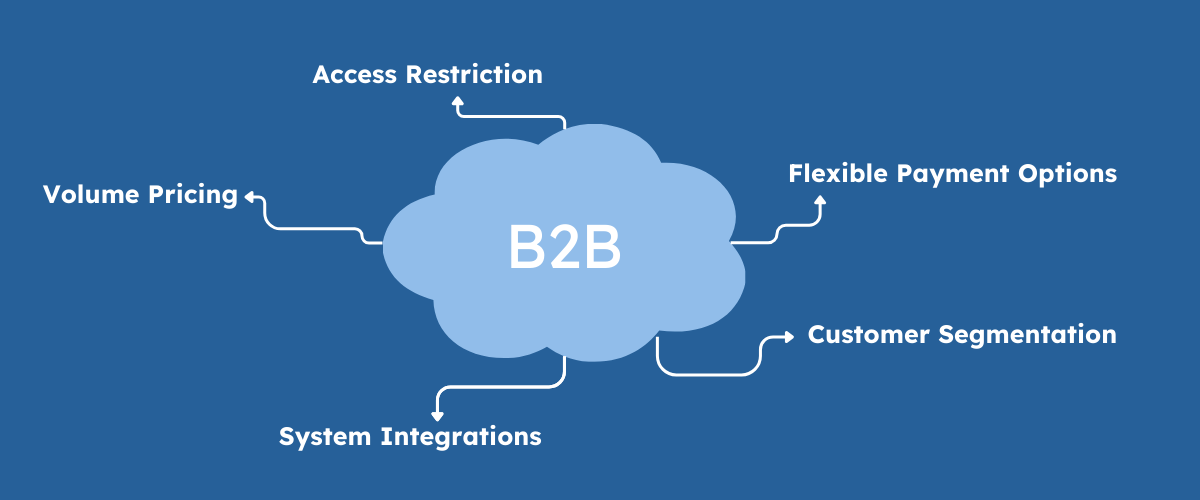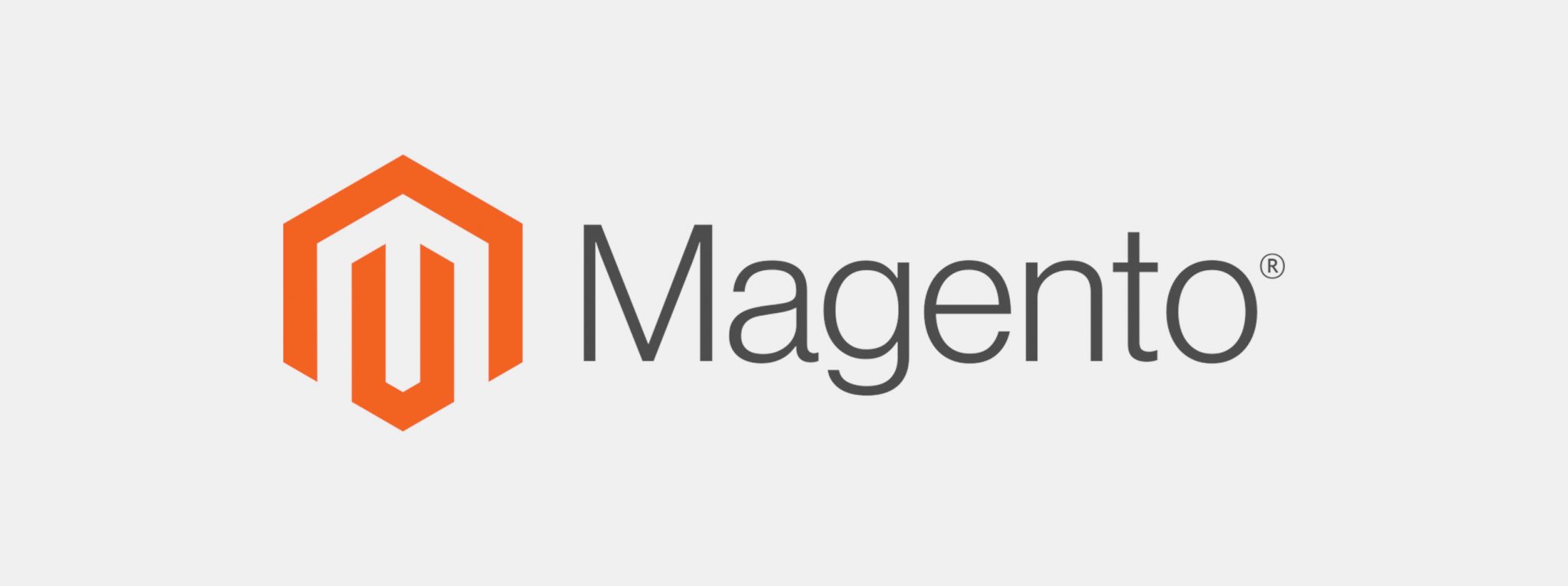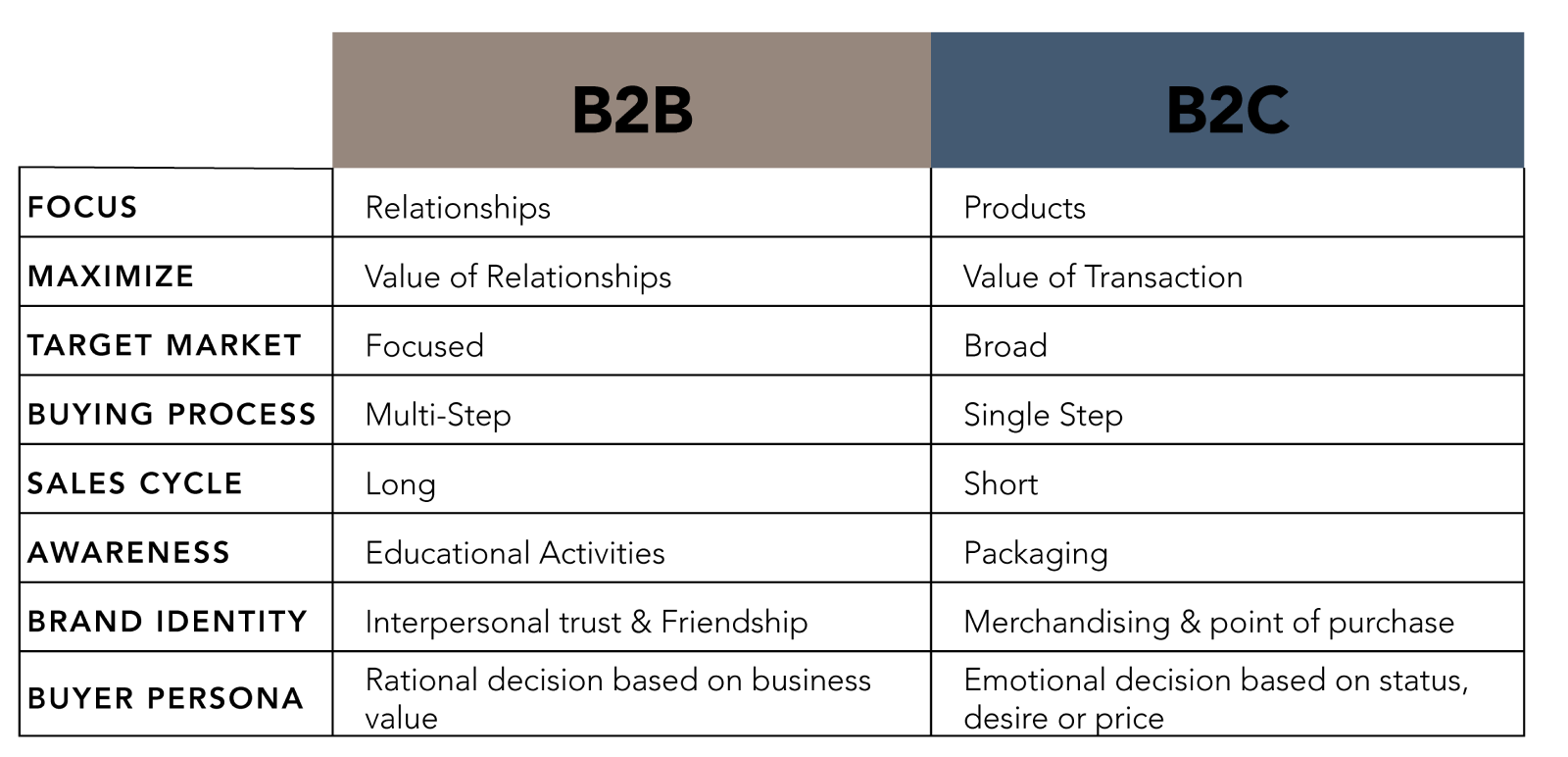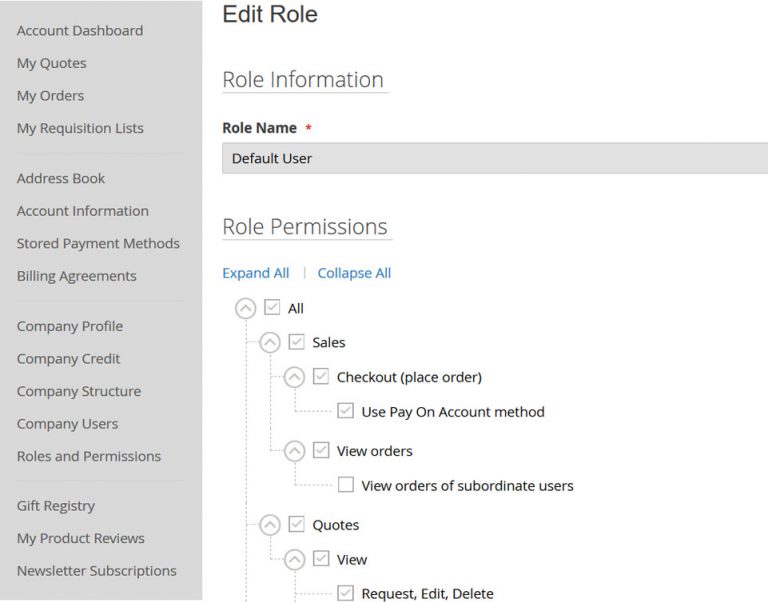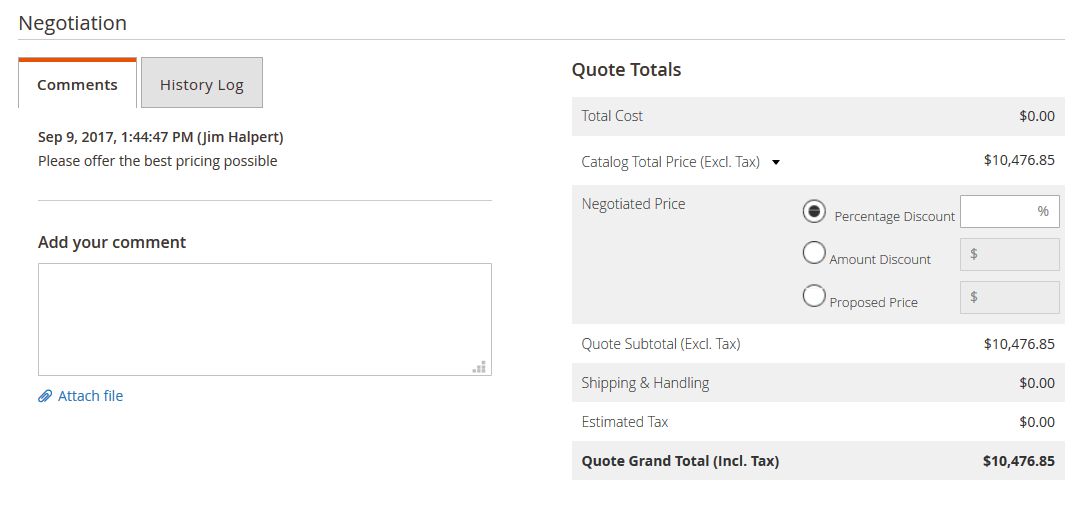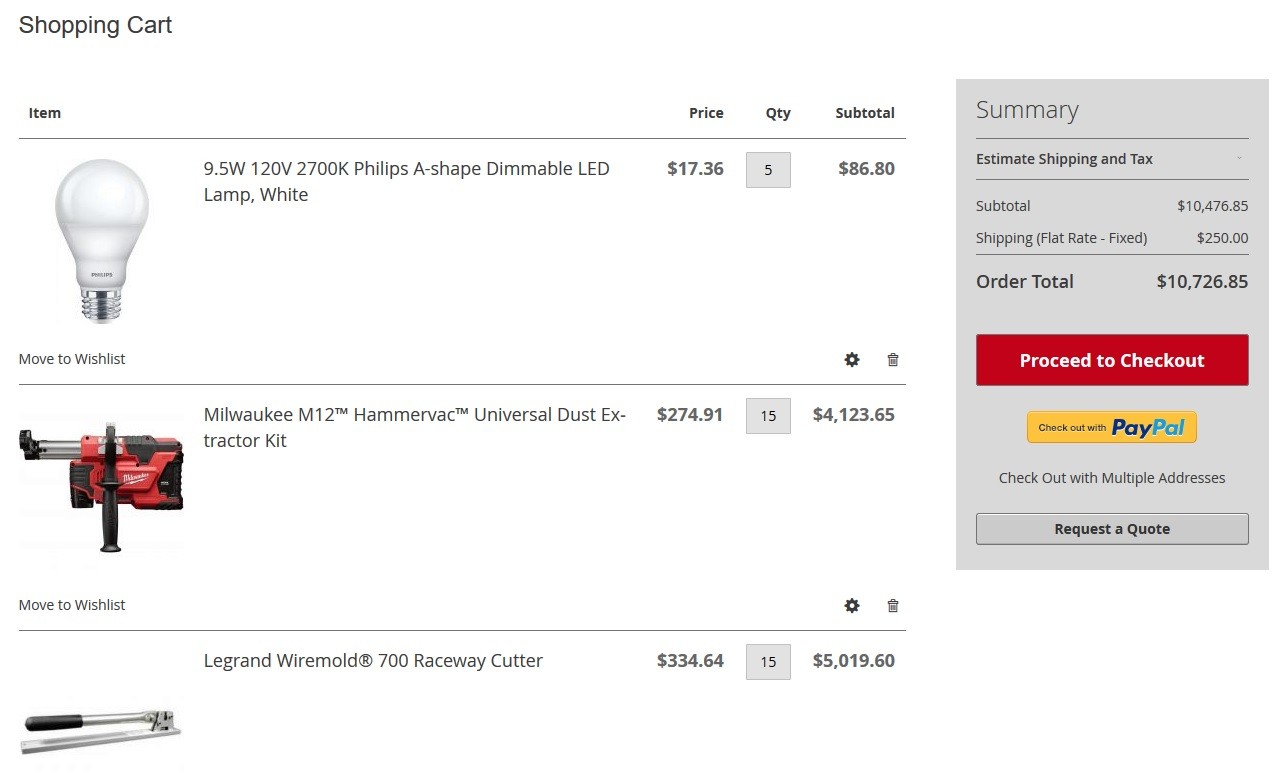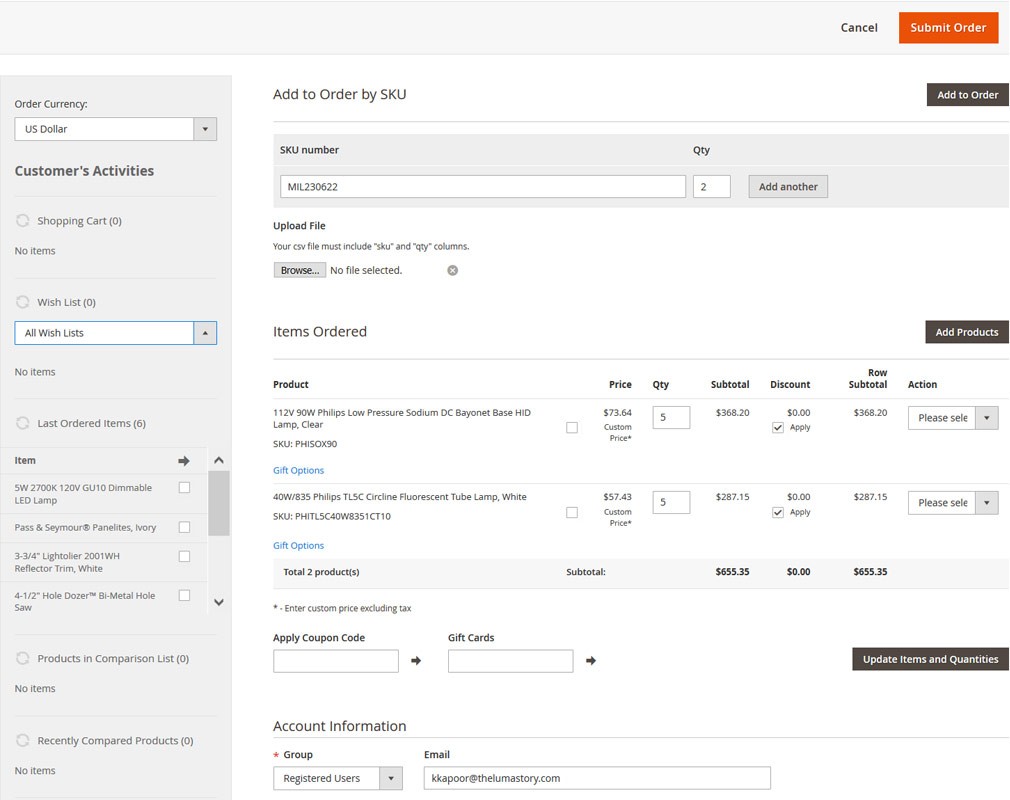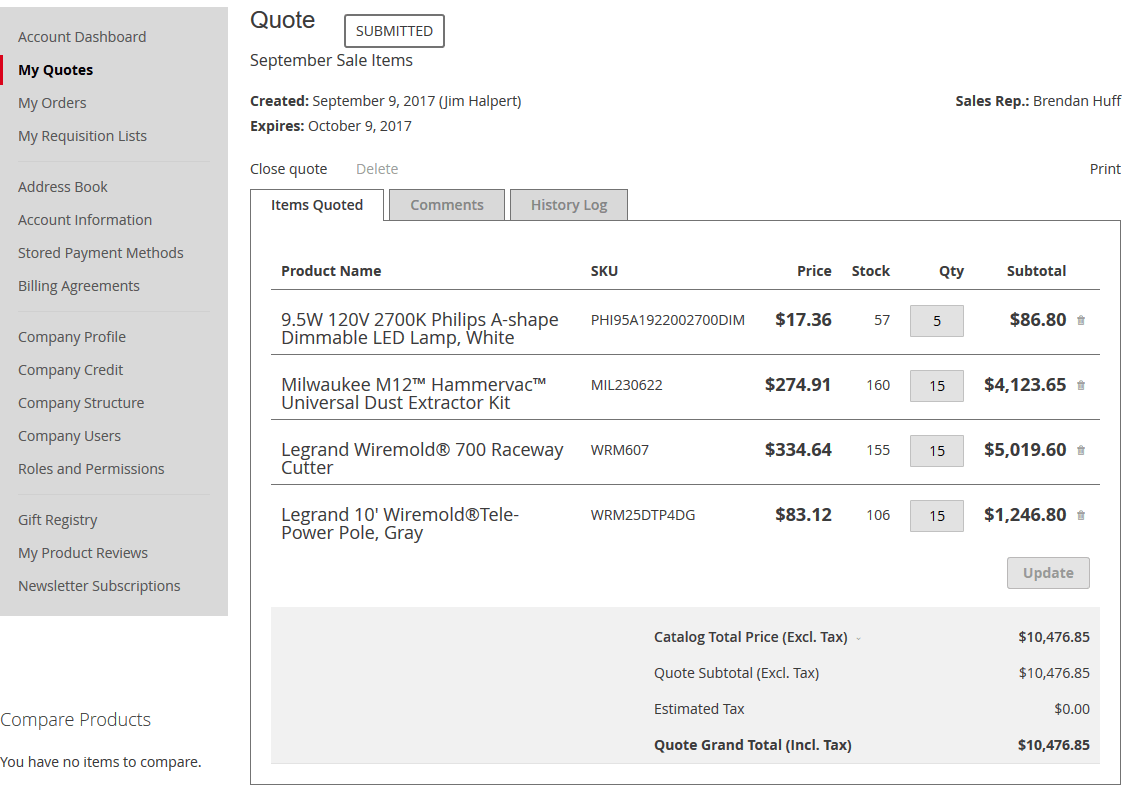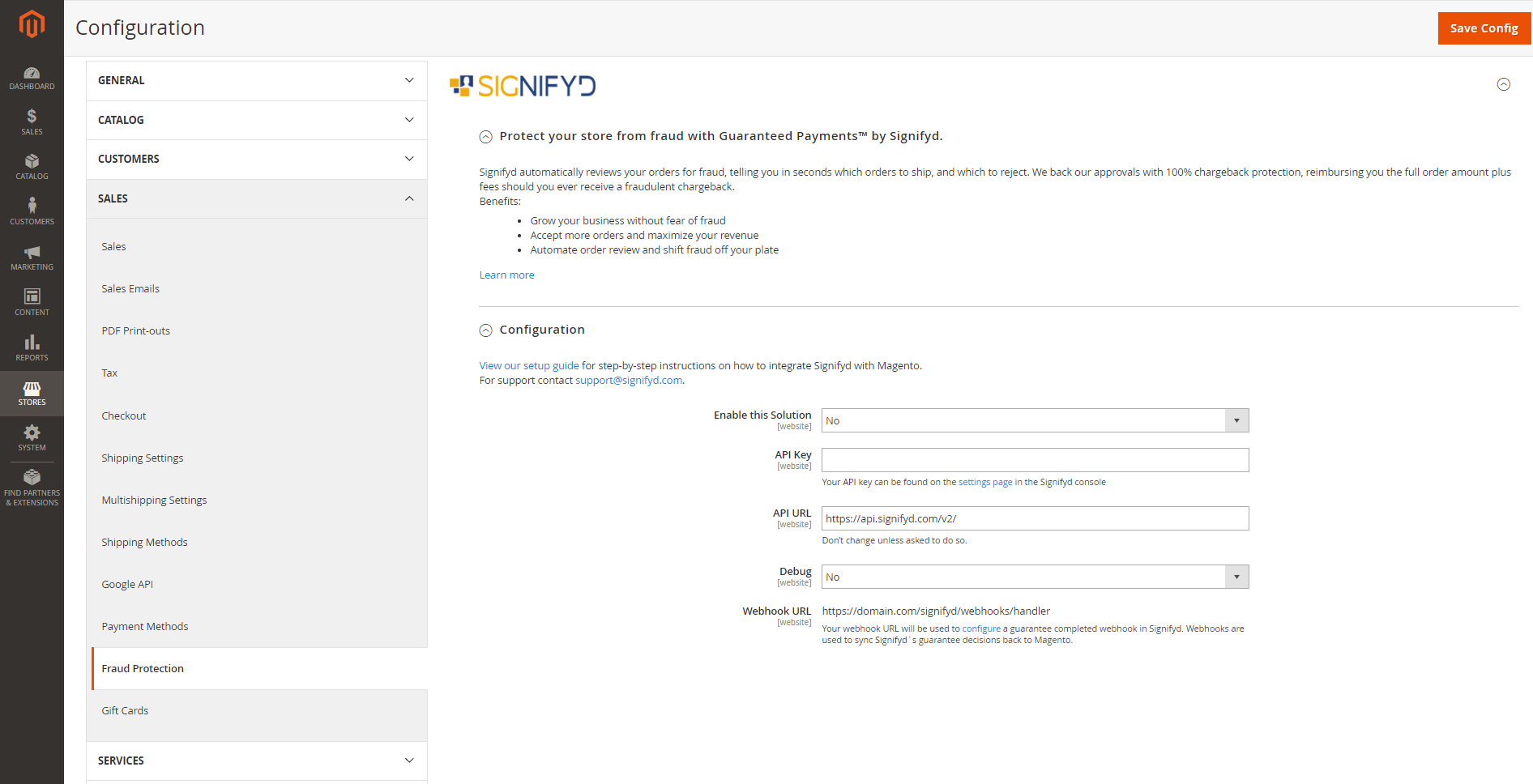B2B ecommerce platforms have gained significant traction in the digital landscape, emerging as a favored choice. These platforms provide businesses with a seamless online experience for procuring and vending products. However, the abundance of available options can present a daunting task when selecting the most suitable platform to meet your business requirements.
Understanding B2B Ecommerce
Businesses are turning to digital structures, leading to the popularity of B2B ecommerce platforms. In 2023, an estimated 17 percent of B2B sales are expected to be generated digitally. In 2019, this share was 13 percent. Overall, U.S. B2B online sales are projected to reach 1.8 trillion U.S. dollars in 2023. These platforms facilitate transactions between wholesalers and distributors. B2B ecommerce enables online transactions for large quantities of goods, providing business owners with better operational efficiency. With features like invoices, customer relationship management, and complete control over the online presence, B2B ecommerce platforms offer software solutions catering to large enterprises’ needs. By leveraging these platforms, businesses can enhance their online store and streamline their B2B ecommerce processes.
The Differences between B2B and B2C Ecommerce
B2B and B2C ecommerce have distinct differences in their target audience and functionality. B2B ecommerce primarily targets businesses, while B2C ecommerce caters to individual consumers. One key difference is that B2B platforms offer customer-specific pricing and bulk order capabilities, allowing companies to receive tailored pricing and make large-scale purchases. Additionally, B2B ecommerce transactions often involve negotiation and offline interactions, unlike the more straightforward online transactions of B2C ecommerce. The checkout process in B2B can be more complex to accommodate different payment terms. Furthermore, B2B marketing provides informational materials highlighting product features, benefits, and ROI for business owners.
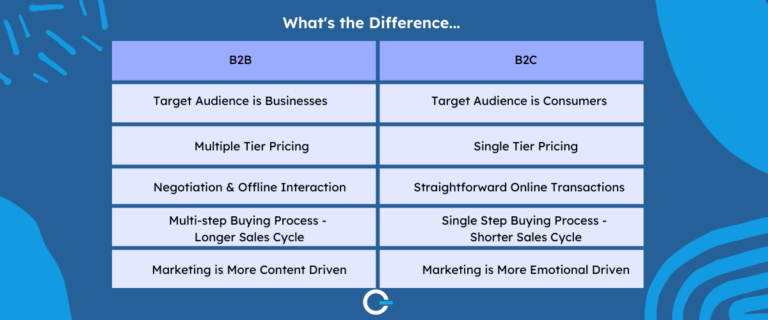
What Are The Benefits of Selling on a B2B Platform?
Selling on a B2B platform offers numerous benefits. B2B platforms provide a cohesive digital interface that facilitates the interaction between buyers and sellers, enabling businesses to extend their market reach and enhance their clientele. Moreover, these platforms empower companies to regulate access to particular web pages, pricing information, and product offerings, catering to distinct customer segments. This feature optimizes supplier and customer management, fostering improved control and coordination. By leveraging B2B platforms, businesses can seamlessly navigate the online landscape, effectively expanding their customer base and enhancing operational efficiency.
Top Contenders in B2B Ecommerce Platforms
BigCommerce Enterprise, Adobe Commerce (formerly Magento), and Shopify Plus are leading contenders in the B2B ecommerce platform market.
BigCommerce Enterprise offers a user-friendly interface and robust features tailored to the specific needs of B2B businesses.
Adobe Commerce is renowned for its highly customizable platform, enabling companies to create unique online experiences through extensive third-party integrations.
Conversely, Shopify Plus provides a scalable solution for B2B businesses, offering a wide range of add-ons and apps to enhance functionality.
These platforms empower business owners to streamline operations, manage invoices, and drive sales through online transactions, ensuring operational efficiency and improved time management for large enterprises.
Features of BigCommerce Enterprise
BigCommerce Enterprise is a robust ecommerce platform offering advanced features to support businesses in their online operations. With its advanced analytics and reporting capabilities, companies can make data-driven decisions to drive growth. The platform provides a seamless checkout process, offering various payment options and integrations for convenience. Customization and personalization features allow businesses to create a personalized user experience, enhancing customer satisfaction.
Furthermore, BigCommerce Enterprise offers functionalities like customer-specific pricing and tiered pricing. With real-time inventory management and shipping integration, businesses can efficiently manage their operations. Overall, BigCommerce Enterprise empowers companies with the tools they need for success in the competitive ecommerce landscape.
BigCommerce B2B Edition
B2B Edition is a package that is a combination of BigCommerce Enterprise and the B2B Edition app. It offers a wide range of advanced features to meet the needs of B2B transactions. Punchout catalogs and quoting systems allow companies to streamline their purchasing process. The user-friendly interface and easy-to-use content management system make it simple for businesses to manage their online presence. Integrated with popular CRM systems, BigCommerce B2B Edition ensures operational efficiency.
It also provides customizable pricing options and customer group management, giving business owners complete control over pricing strategies. With built-in SEO tools, it helps improve online visibility and attract potential customers.
Overview of Adobe Commerce
Adobe Commerce is an open-source platform that offers extensive customization options for b2b ecommerce websites. Advanced product management and inventory control features give business owners complete control over their online transactions. The platform seamlessly integrates with various payment gateways and shipping providers, ensuring hassle-free and secure transactions.
Furthermore, Adobe Commerce offers a wide range of extensions and modules, such as invoices and social media plugins, allowing store owners to enhance the functionality of their web stores. With robust SEO capabilities, large enterprises can improve their online presence and drive organic site traffic.
Insights on Shopify Plus
Shopify Plus is a highly scalable and reliable platform usable by businesses of all levels. Advanced features like multi-channel selling and internationalization enable businesses to expand their reach and tap into new markets. Also, the platform seamlessly integrates with third-party apps and tools, enhancing functionality and customization. Business owners can enjoy customizable checkout options for different business models and payment terms.
Shopify Plus offers 24/7 customer support, promptly addressing technical or operational issues. It’s a comprehensive solution that provides the necessary tools and support for B2B ecommerce success.
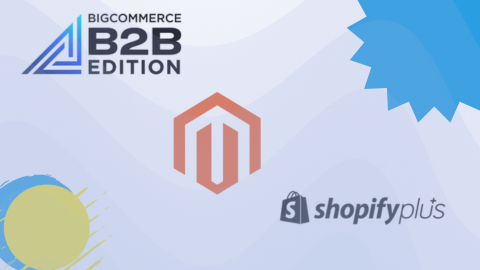
What Makes a Good B2B Ecommerce Platform?
A good B2B ecommerce platform offers a user-friendly interface, robust security measures, and seamless integration with other systems. It also provides powerful search and filtering functionalities and flexible pricing options.
Consideration of Access Options, Roles, and Permissions
When establishing a B2B ecommerce platform, it is imperative to carefully contemplate the diverse access options, roles, and permissions. By incorporating role-based permissions, one can guarantee secure access to the platform and allocate distinct access levels to employees, customers, and partners. The definition of user roles and permissions enables the restriction of access to sensitive information, thereby safeguarding both business and customer data.
The incorporation of multi-factor authentication is imperative for enhanced security. This functionality provides an extra safeguard level by requiring users to authenticate their identity through multiple methods. Additionally, keeping track of user activities with comprehensive audit logs provides transparency and accountability. By prioritizing these considerations, you can control your B2B ecommerce platform entirely and protect your business from potential risks.
Bulk Orders, Volume Pricing, and Minimum-Maximum Thresholds
Regarding B2B ecommerce platforms, offering features like bulk orders, volume pricing, and minimum and maximum thresholds can significantly streamline the ordering process for customers. Customers can easily place bulk orders through your platform, which ensures convenience and efficiency.
Incentivizing larger orders with volume pricing discounts encourages customers to purchase more, benefiting both parties. Setting minimum and maximum order thresholds helps maintain control over order quantities. Automating calculations for bulk discounts and thresholds saves time and eliminates manual errors. Providing real-time inventory availability ensures accurate order fulfillment. Incorporating these features into your B2B ecommerce platform improves the operational efficiency and overall customer experience.
Necessity of Multiple Payment Options
Maximize customer satisfaction and boost traffic to your B2B ecommerce platform by providing various payment options. Credit card payments, online banking, and digital wallets cater to diverse customer preferences and ensure a seamless purchasing experience. Don’t miss out on potential sales – prioritize payment options. Integrating secure payment gateways that provide a safe and reliable transaction process is crucial.
Additionally, consider partnering with popular payment providers to offer added convenience to your customers. Enable customers to save their payment information for future purchases, enhancing their overall shopping experience.
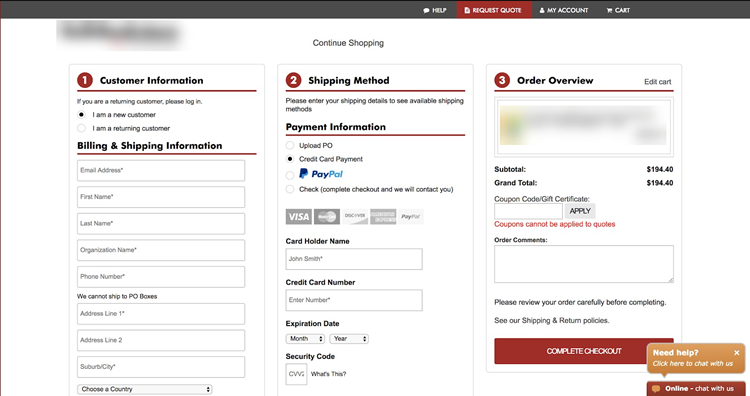
Need for Systems Integrations
To maximize operational efficiency in B2B ecommerce, integrating your platform with existing systems like ERP and CRM is crucial. This integration allows real-time customer data, orders, and inventory syncing across platforms. Businesses can save time and resources by automating processes and reducing manual data entry.
Seamless communication between systems enables better efficiency and collaboration. When choosing a B2B ecommerce platform, it’s essential to consider flexible integration capabilities to ensure smooth system integration. Integrating systems streamlines operations enhances customer experiences and empowers business owners to have complete control over their online presence.
Role of Inventory Management
Inventory management plays a crucial role in the success of B2B ecommerce platforms. By ensuring real-time visibility of inventory levels, businesses can avoid overselling or stockouts, leading to improved customer satisfaction. Implementing inventory tracking and setting up automated alerts for low-stock items helps businesses stay on top of their inventory and make informed decisions.
Additionally, enabling backorder and pre-order functionalities allows for effective inventory management. Integrating with barcode scanners or RFID technology further enhances accuracy in inventory management. With these strategies in place, businesses can efficiently manage their inventory, optimize operations, and provide a seamless experience to customers.
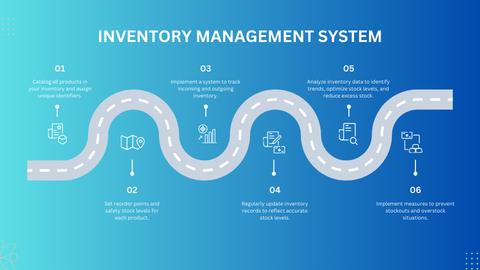
Significance of Product Catalog Management
Maintaining a well-organized and up-to-date product catalog on your B2B ecommerce platform is crucial. Categorizing products based on attributes, categories, and hierarchies improves navigation for customers. Implementing search and filtering options enables easy product discovery, enhancing the overall user experience. Enabling batch product updates streamlines catalog management, making it more efficient.
Supporting multiple product images and detailed descriptions gives customers a comprehensive understanding of your products. Implementing these catalog management practices is crucial for businesses seeking to enhance customer experience, boost sales, and streamline operations. When selecting the ideal B2B ecommerce platform, carefully weighing these factors becomes imperative. Take advantage of the opportunity to revolutionize your business and achieve unparalleled success.
The Impact of Advanced SEO Tools
Boost your B2B ecommerce platform’s visibility with advanced SEO tools. Optimize for search engines, generate SEO-friendly URLs and meta tags for your product pages, and rank higher in search results. Implementing schema markup further enhances your search visibility by providing additional information and context to search engines. Conducting keyword research helps you target relevant search terms for your customers. By monitoring website performance and making data-driven SEO improvements, you can ensure that your B2B ecommerce platform remains competitive and drives organic traffic.
Value of Personalized Experience
It is crucial to provide personalized experiences that cater to customers’ preferences. You can achieve this by implementing customer-specific pricing and discounts, offering customized product recommendations and promotions, and enabling features such as saved carts and wishlists for easy reordering. By tailoring the experience to individual customers, businesses can foster stronger relationships and increase customer satisfaction.
Incorporating NLP terms such as customer relationship management, online transactions, and operational efficiency can optimize the personalized experience and drive better results. Offering a customized and convenient buying journey sets your business apart and creates a lasting impression on your B2B customers.
Ability to Sell Internationally Including Multi-Language Support
Expand your business globally using a B2B ecommerce platform offering multi-language support. With the ability to provide localized content and product information in multiple languages, you can effectively reach a wider international audience. Additionally, offering multi-currency transaction options ensures a seamless buying experience for customers worldwide.
Complying with local tax regulations and shipping requirements is crucial for smooth cross-border operations. Furthermore, seamless translation and localization processes guarantee to convey your message in different languages. By embracing a B2B ecommerce platform with international selling capabilities, you can unlock new opportunities and establish a solid global presence.
Optimizing Your B2B Store for Mobile Devices
Maximize your B2B store’s potential by optimizing it for mobile devices. A mobile-friendly website is indispensable in today’s world, where business owners rely heavily on smartphones and tablets for online transactions. When selecting a B2B ecommerce platform, prioritize those with responsive design and mobile-friendly features to ensure success.
Optimize your website for fast loading speeds on mobile devices to provide a seamless user experience. Easy navigation and checkout processes keep customers engaged on mobile devices. Use mobile-specific features like push notifications or location-based services to enhance your online presence and improve customer engagement.
Why Mobile Optimization is Essential for B2B Ecommerce.
Mobile optimization is crucial for success in B2B ecommerce due to buyers’ increasing use of mobile devices. Investing in a mobile-friendly design is vital for businesses to enhance user experience, increase repeat business, and garner positive reviews. A mobile-optimized site also boosts search engine rankings, making it easier for potential customers to find products.
The responsive design guarantees a smooth transition across various devices, ensuring a uniform user experience. It is imperative to recognize the advantages it offers. By optimizing for mobile, B2B enterprises can capitalize on the escalating trend of mobile device purchasers, leading to amplified sales and revenue.
How Much Does a B2B Ecommerce Platform Cost?
The expenses linked with B2B ecommerce platforms may differ depending on the platform type and its characteristics. As a B2B company, you must account for one-time setup fees, subscription fees, and transaction fees. Furthermore, changes, integrations, and add-ons may entail additional charges. We strongly advise comparing price packages to guarantee you make the best option for your company. Don’t leave anything to chance; take control of your finances and select the best choice for your requirements.

Factors Influencing the Cost
When considering different B2B ecommerce platforms, several factors can influence the cost. B2B businesses should evaluate the platform’s scalability and the price structures offered by competing platforms. Finding pricing options tailored to meet customers’ specific requirements is essential and must be prioritized. Pay attention to the costs of additional features like CRM integration or real-time analytics.
The total cost of ownership, encompassing maintenance and support spending, must be evaluated.
Finally, the whole cost of ownership, including maintenance and support expenses, must be considered. Businesses may make an informed decision and choose the best B2B ecommerce platform for their financial resources and aims by carefully evaluating these aspects.
Cost Comparison of Different Platforms
When selecting a B2B ecommerce platform, it is essential to compare the pricing plans of various platforms. Seek out platforms that provide a satisfactory combination of features and support for the price. Additionally, assess the scalability of the platform and its compatibility with your budget. Analyze the pricing structures various platforms provide, encompassing subscription-based or pay-per-use alternatives.
Further, consider any supplementary expenses such as setup fees or transaction fees. A comprehensive comparison of prices among different platforms allows you to identify the most optimal solution that balances cost-effectiveness and the requisite features for your business.
Choosing the Right B2B Ecommerce Solution for Your Business
Assessing your individual goals and objectives is important when selecting a B2B ecommerce solution for your business. It is critical to consider the platform’s scalability to support future expansion and the user experience and interface to ensure it is intuitive and user-friendly. It is best to look for platforms that allow for customization, allowing you to customize the solution to your specific company needs. Furthermore, the platform’s integration capabilities with other systems, such as ERP or CRM, must be evaluated to ensure a continuous data flow. Considering these criteria, you can choose a B2B ecommerce solution that matches your business objectives and improves operational efficiency.
Assessing Business Needs and Requirements
You must consider several factors to assess your B2B business needs and requirements. Start by identifying the specific requirements unique to your business, such as order management and inventory control. Additionally, consider the volume of transactions and the complexity of your product catalog. Assessing the necessity of tailored pricing, customized catalogs, and self-service functionalities is crucial. Consider the degree of customer service and support essential for your company. Lastly, remember to factor in any specific industry regulations or compliance requirements. These considerations will help you choose the right B2B ecommerce platform to meet your business needs.
Vendor Evaluation and Selection
When choosing a B2B ecommerce platform, it is crucial to research and evaluate different vendors. Consider the platform’s reputation, experience, and customer reviews. Evaluating the platform’s track record and customer satisfaction levels is essential. Additionally, assessing the vendor’s ability to provide ongoing support and updates is vital.
To choose the perfect B2B ecommerce platform for your business, thoroughly analyze the vendor’s roadmap for upcoming enhancements and upgrades. This crucial step will enable you to identify the most suitable option confidently. By carefully considering these factors, business owners can confidently make a well-informed decision that aligns perfectly with their specific requirements and objectives. Following this approach, you will select the ideal B2B ecommerce platform to propel your business toward unprecedented success.
What is Better: A SaaS Solution or An Open-Source for the B2B store?
When considering a B2B store, evaluate which solution is better: a SaaS solution or open-source. SaaS offers easy setup and automatic updates, while open source provides flexibility and customization options. Assess the total cost of ownership and required technical expertise. Remember to consider security and data privacy features.
Open Source
- Offers flexibility, customization, and lower costs
- Allows integration with third-party tools
- Provides control over growth
- Allows users to build a custom online store
- Provides full access to the original source code
- Often leaves responsibilities like security, licensing, and maintenance to the user
SAAS
- Offers quick setup, enhanced security, reliable support, and scalability
- Provides an out-of-the-box experience and saves maintenance costs
- The provider builds, hosts, and maintains the software
- Allows users to build a custom online store
- Includes costs like security, licensing, and maintenance in the monthly subscription rate
Conclusion
The decision you make when choosing your B2B eCommerce platform impacts your digital success. With many options available, it’s imperative to prioritize your unique requirements and goals while evaluating different platforms. While selecting a platform, consider scalability, customization options, integration capabilities, user experience, and customer support. By doing thorough research and comparing various options, you can choose the ideal B2B e-commerce platform to unlock new growth opportunities and enhance your overall business operations. Seek expert advice or consult with industry professionals to make an informed decision without hesitation.
Investing in the right B2B ecommerce platform will not only streamline your operations but also enhance customer experience, drive sales, and ultimately contribute to the growth and success of your business.
Other Articles You May Be Interested In

